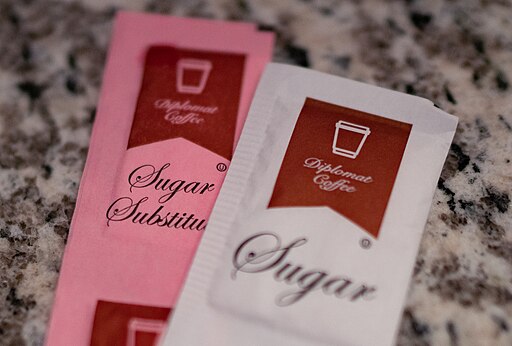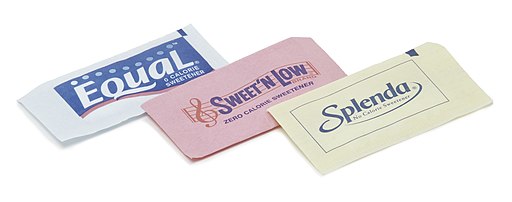“Zero sugar” means no sugar added, while “sugar-free” may contain artificial sweeteners. Both aim to reduce sugar content, but methods differ.
TL;DR Zero Sugar Vs. Sugar Free
Zero sugar products are specifically formulated to contain no added sugars whatsoever. They may still contain natural sugars found in ingredients like fruits or dairy, but any additional sweeteners have been removed.
Sugar free products often use alternative sweeteners like stevia or artificial sweeteners to provide a sweet taste without adding calories or raising blood sugar levels.
What is Zero sugar?
“Zero sugar” refers to products that contain no added sugars or sweeteners during manufacturing. Foods and beverages labeled as “zero sugar” imply that there is an absence of any sugars, including natural sugars, and artificial sweeteners.
It is a term commonly used in the food and beverage industry to cater to individuals seeking low-calorie or low-carbohydrate options. Zero sugar products are often marketed as alternatives for those managing their sugar intake due to health concerns like diabetes or a desire to reduce calorie consumption.
While “zero sugar” indicates the absence of sugars in the product, it’s important to check labels for any sugar substitutes or artificial sweeteners that may have been used. Additionally, the term specifically addresses added sugars during production and does not necessarily mean that the product has zero carbohydrates.
As consumer awareness of health and nutrition grows, “zero sugar” has become a popular label claim, prompting manufacturers to create a variety of products across different categories with reduced sugar content.
What is Sugar Free?

“Sugar-free” refers to products that do not contain added sugars but may include sugar substitutes or artificial sweeteners. These substitutes aim to provide sweetness without the caloric content of traditional sugars. The term is commonly used in the food and beverage industry to cater to individuals who want to limit their sugar intake for various reasons, including managing weight or health conditions like diabetes.
Sugar-free products often use sweeteners such as aspartame, sucralose, stevia, or erythritol to enhance sweetness without contributing to the overall sugar content. It’s crucial for consumers to read labels carefully, as sugar-free items may still contain naturally occurring sugars or carbohydrates.
While sugar-free options can be beneficial for those watching their sugar intake, it’s essential to consider the potential health impacts of sugar substitutes. Some people may prefer sugar-free products to reduce calorie consumption, manage blood sugar levels, or adhere to dietary preferences, but moderation and awareness of individual nutritional needs remain key when incorporating sugar-free items into one’s diet.
Zero Sugar Vs. Sugar Free – Key differences
| Characteristic | Zero Sugar | Sugar-Free |
|---|---|---|
| Definition | No added sugars, including natural sugars | No added sugars; may include sugar substitutes or artificial sweeteners |
| Sweeteners | Typically relies on natural sweetness or may use sugar alcohols | Often includes artificial sweeteners or sugar substitutes |
| Caloric Content | May contain calories from natural sources like fruits | Can be low or zero-calorie, depending on sweeteners used |
| Carbohydrate Content | May still contain carbohydrates from natural sources | May have reduced or zero carbohydrates, depending on formulation |
| Labeling Intent | Focus on absence of all sugars | Emphasis on reducing or replacing added sugars |
| Usage Considerations | Suitable for those avoiding all sugars | Ideal for individuals seeking lower-calorie or lower-carb options |
| Common Products | Natural foods, beverages, some processed items | Processed foods, diet sodas, sugar-free candies |
| Nutritional Impact | May offer some nutrients from natural sources | Potential use of artificial sweeteners may have varying health considerations |
Benefits of choosing zero sugar or sugar free options
Choosing zero sugar or sugar-free options can offer several benefits, depending on individual health goals and dietary needs. Here are some potential advantages:
Weight Management: Zero sugar and sugar-free options can be lower in calories, making them suitable for those aiming to manage or reduce their overall calorie intake and support weight loss.
Blood Sugar Control: For individuals with diabetes or those looking to manage blood sugar levels, opting for products without added sugars or with sugar substitutes may be beneficial in controlling glucose levels.
Dental Health: Reducing sugar intake is associated with better oral health, as it helps minimize the risk of cavities and tooth decay.
Calorie Reduction: Sugar-free options are often lower in calories, making them a preferred choice for those seeking to maintain a calorie-controlled diet.
Reduced Sugar Intake: Choosing products labeled as zero sugar or sugar-free can contribute to an overall reduction in daily sugar consumption, which aligns with dietary guidelines promoting lower added sugar intake.
Potential drawbacks of consuming zero sugar or sugar free products
While zero sugar or sugar-free products can offer benefits, there are potential drawbacks associated with their consumption. It’s essential to be aware of these considerations:
Artificial Sweeteners: Sugar-free products often use artificial sweeteners, which may have distinct tastes and, for some, an aftertaste that may be unappealing.
Gastrointestinal Issues: Some sugar substitutes, particularly sugar alcohols like sorbitol and xylitol, can cause gastrointestinal discomfort, including bloating, gas, and diarrhea when consumed in excess.
Overcompensation: People might overcompensate for the lack of sugar by consuming larger quantities of sugar-free products, potentially leading to an overconsumption of other ingredients, like fats or carbohydrates.
Potential Impact on Gut Microbiota: Artificial sweeteners may influence the composition of gut microbiota, potentially impacting digestive health, though research on this topic is ongoing.
Desire for Sweeter Tastes: Regular consumption of sugar substitutes may increase cravings for sweeter tastes, potentially affecting food preferences.
Examples of Zero Sugar and Sugar Free Products
Zero Sugar Products
Unsweetened Almond Milk: Almond milk without added sugars.
Plain Greek Yogurt: Some varieties contain no added sugars.
Fresh Fruits and Vegetables: Naturally contain zero added sugars.
Plain Tea or Coffee: Without added sweeteners.
Water: Naturally sugar-free.
Sugar-Free Products
Sugar-Free Soda: Beverages sweetened with artificial sweeteners.
Sugar-Free Gum: Gum sweetened with sugar substitutes.
Sugar-Free Jello: Gelatin dessert made with artificial sweeteners.
Sugar-Free Cookies: Some cookies made with sugar substitutes.
Sugar-Free Syrup: Syrup alternatives sweetened with sugar substitutes.
It’s important to note that while these products may be labeled as zero sugar or sugar-free, they can still contain naturally occurring sugars or other carbohydrates. Additionally, individual tolerance to sugar substitutes varies, and potential side effects should be considered. Checking ingredient labels and nutritional information is crucial for making informed choices based on personal dietary preferences and health goals.
Image Credits
Featured Image By – Evan-Amos, Public domain, via Wikimedia Commons
Image 1 By – Tony Webster from Minneapolis, Minnesota, United States, CC BY 2.0, via Wikimedia Commons








